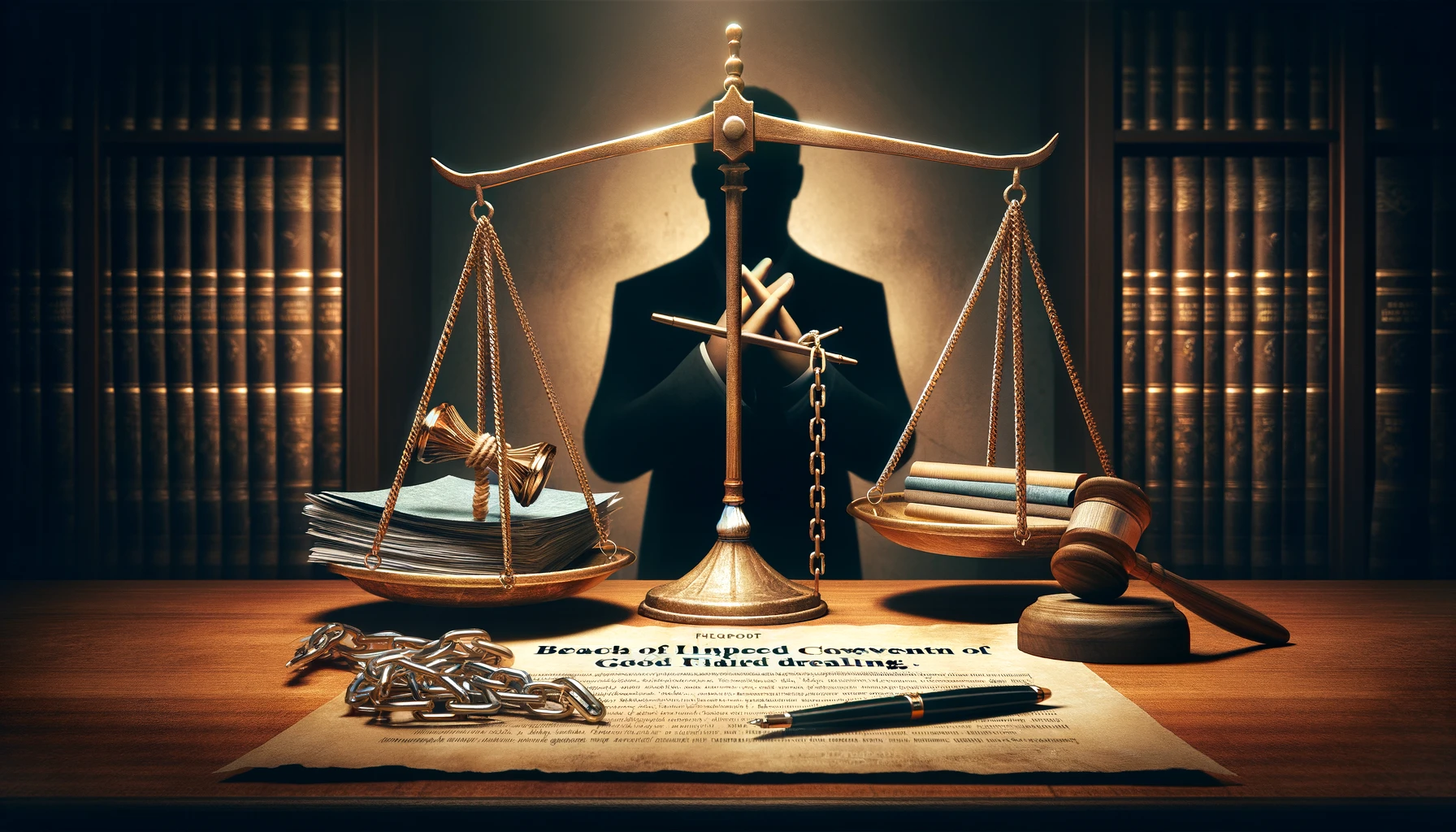
Breach of Implied Covenant of Good Faith and Fair Dealing
The concept of the “Breach of Implied Covenant of Good Faith and Fair Dealing” is fundamental to contracts governed by California law. It embodies the principle that parties must conduct themselves in a manner that upholds the rights of the other party to receive the benefits of the contract, even though it may not be explicitly stated within the contract terms.
The elements typically involve proving the existence of a contract between the parties, the fulfillment or excusal of contractual obligations by the plaintiff, the existence of discretionary decision-making by the defendant as required by the contract, the defendant’s actions or inactions, and the unjustified motivations behind such actions or inactions leading to harm suffered by the plaintiff.
Significance of the Covenant
The significance of this covenant lies in its role in ensuring fairness and preventing opportunistic behavior in contractual relationships. It sets the expectation that parties will perform their contractual duties honestly, fairly, and in alignment with the spirit of the contract. Breaches of this covenant can arise in various contexts, such as insurance or employment contracts, where one party unreasonably withholds payment or abuses discretionary power.
It’s important to recognize that the application of this principle varies depending on the specifics of each contract and the circumstances surrounding the alleged breach. Courts consider factors such as the contract’s nature, the parties’ intentions, and the defendant’s actions when determining breach.
Consequences of Breach
The consequences of breaching this covenant can be significant, potentially entitling the aggrieved party to various forms of damages, including contract damages, consequential damages, and in extreme cases, punitive damages.
Disclaimer: The content of this blog is intended solely for informational purposes and does not constitute legal advice. Legal issues are complex and individual; as such, if you seek guidance on a specific legal concern, please consult with a licensed attorney. Contact A.E.I. Law, P.C. at (888)-423-4529 for personalized legal counsel.


